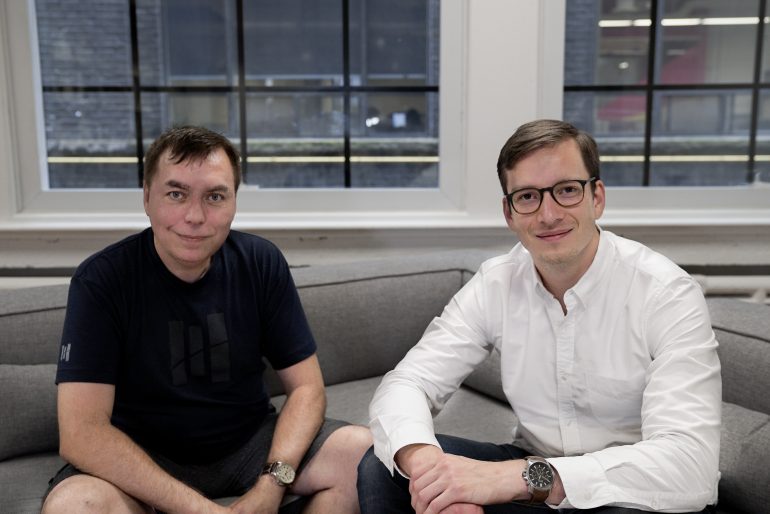Reduce Startup Risks (RSR) is a video interview series aimed at helping Canadian tech startups scale quickly & with ease. This is a chance for founders and executives to learn from their peers as they discuss the common pitfalls associated with high-growth and share the tools and tactics they’ve learned on the ground. RSR is presented by Toronto-based StackAdapt and led by company co-founder, Vitaly Pecherskiy.
For our first RSR interview, I sat down with Bohdan Zabawsky, serial CTO and founder of Fortay.co to unpack transitioning from a startup to a major organization, hiring for success, anticipating problems, and dealing with toxic employees while keeping strong employees motivated — specifically engineers, whether they are destined for leadership or not.
Bohdan Zabawsky graduated university in the late 1980s, an era before the term “startup” became ubiquitous, and a less than stellar time to be entering the workforce as Canada clawed its way out of a recession. He was lucky enough to land a position at Bell Canada, where he was mentored on the ins and outs of large organizational culture, business process, and project management.
Bohdan first dipped his toes in the startup world at ClearNet, a wireless company he helped grow from 100 to 2,500 employees. When Telus acquired ClearNet for $6.7 billion, he went looking for new adventures. After joining a series of telecom and non-telecom related startups, he is currently the CTO of Mercatus, a company Bohdan describes as “Shopify for grocers.”
Transitioning from a lean, lightning-paced team where employees wear many hats to a process-driven organization can often feel about as uncomfortable as puberty.
“Ninety-nine percent [of startups] devolve not because their ideas are bad, but because they did not focus on the people.”
Addressing this point, Bohdan notes that the proper execution of two key elements is integral to a smooth transition: process and people. While process is important, the problem, he points out, is that it “becomes a religion” for many organizations to the point where they don’t stop to question why the process is necessary: “What I always say to the people I support is, ‘if you can’t understand why you’re doing it then it’s probably the wrong thing to be doing.’”
When it comes to people, many startups make the mistake of hiring for the sake of hiring, or “to fill seats” as Bohdan puts it, and ultimately, “lose sight” of what made the initial team so successful. Two factors come into play here: cognitive fit and culture fit.
Cognitive fit refers to on paper credentials. Bohdan calls these “interesting” but not necessarily correlated to on-the-job success. True culture fit, often overhyped and misunderstood, is what he believes to be the main driver of successful, collaborative teams.
Of course, as growth accelerates and teams are disrupted, change can often lead to unforeseen issues. I asked Bohdan how leaders can identify when they have a problem.
Bohdan lists a number of tactics including employee one-to-ones and engagement surveys (his inspiration for Fortay.co), but points out that each leader will find their preferred set of tools and tactics based on his or her leadership style.
Occasionally, problems arise from a single, toxic employee. In this case, Bohdan suggests being 100 percent sure of the facts and dealing with the employee directly. Termination should always be a last resort.
As a CTO, Bohdan leads a team of engineers, some of who aspire to leadership and other who are more than happy to master their craft rather than manage others.
Daniel Pink categorizes motivation into three pillars: “mastery, autonomy and purpose.”
You’ll notice that money is not among these three.
When asked how founders can develop and grow engineering teams without removing people from what they really like doing, Bohdan refers to the work of Daniel Pink, who categorizes motivation into three pillars: “mastery, autonomy and purpose.” You’ll notice that money is not among these three. While it can certainly be a demotivator if an employee is not being treated fairly within the market, a competitive salary based on position tends to remove money from the equation entirely.
“Largely, we look at each person’s aspirations,” Bohdan said. If an engineer is looking to lead, the process is fairly straightforward: they should be given all the tools and training they need to achieve this role. But what about those who simply don’t want to lead? Bohdan points out that moving, say, a front end developer into dev-ops, or a desktop developer over to mobile, can help keep the job fresh and interesting for top employees as they progress over the years.
And finally, the golden question: What is the number one risk for startups? Bohdan answers quickly: “It’s execution…ninety-nine percent [of startups] devolve not because their ideas are bad, but because they did not focus on the people, on the culture, on the million technical things you need to do to move the business forward everyday.”


